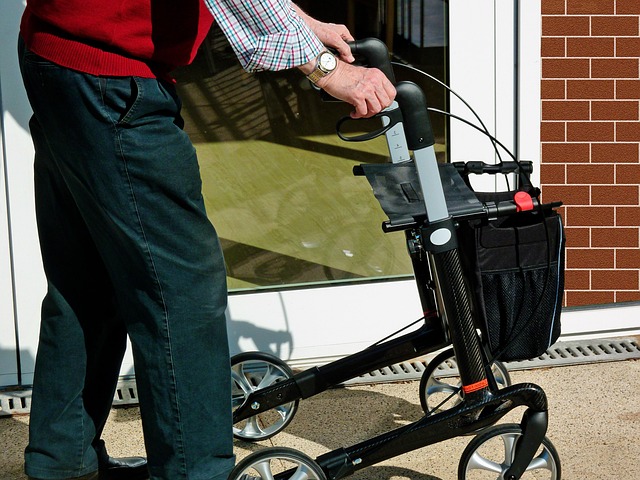Mental Skills Training for Competitive Consistency
Consistent performance in competition depends as much on mental skills as on physical preparation. Mental skills training develops focus, emotional regulation, decision-making, and routine management so athletes can reproduce performance under pressure. Integrating these skills with physical training, recovery strategies, technique refinement, and data-driven monitoring helps reduce variability and supports reliable outcomes across seasons and events.

This article outlines practical, evidence-informed ways to build mental skills for competitive consistency, showing how psychology links with training, recovery, biomechanics, nutrition, periodization, endurance, strength, mobility, monitoring, sleep, technique, conditioning, rehabilitation, and analytics. This article is for informational purposes only and should not be considered medical advice. Please consult a qualified healthcare professional for personalized guidance and treatment.
Psychology: What mental skills matter?
Mental skills training centers on attention control, arousal regulation, imagery, goal-setting, and coping strategies. Athletes who practice focused routines and deliberate mental rehearsal reduce performance drift and improve decision speed under stress. Psychological strategies also shape motivation and adherence to training plans, which in turn affect physical conditioning and rehabilitation. Working with a qualified sport psychologist or coach to build individualized protocols ensures mental work maps onto technical and physical demands, supports recovery behaviors, and complements analytics-informed adjustments.
Training and periodization: How to structure practice?
Mental skills fit into periodization the same way strength or endurance work does: plan progressive phases with clear objectives. Early phases emphasize learning technique and building confidence through manageable tasks; pre-competition phases shift toward simulation of pressure and decision-making under fatigue. Integrating short mental practices—focused attention drills, pre-performance scripts, and visualization—during normal training sessions makes those skills context-specific. Coordination between mental sessions and physical training load helps prevent overload and improves the carryover of psychological readiness into competition.
Recovery and sleep: How do they support consistency?
Recovery and sleep are foundational to reproducible performance. Inadequate sleep disrupts attention, memory consolidation, emotional regulation, and metabolic recovery—undermining mental skills and increasing variability. Structured recovery plans that include sleep hygiene, active recovery, and nutrition support both physical regeneration and the cognitive processes needed for skill retention. Athletes who monitor sleep and recovery markers can adjust training intensity and mental load, reducing the risk of burnout and preserving consistent execution under competitive stress.
Technique and biomechanics: How are skills stabilized?
Consistent technique emerges when biomechanical patterns are reinforced under varied conditions. Mental skills like focus, cueing, and imagery accelerate motor learning by directing attention to critical movement features. Repetition under progressive variability—different speeds, fatigue levels, and competitive simulations—builds automaticity. Collaboration between coaches, rehabilitation specialists, and biomechanists helps identify technical inconsistencies and design drills that align physical capacities (strength, mobility, conditioning) with mental cues to ensure technique remains reliable during competition.
Monitoring and analytics: How to track progress?
Objective monitoring and analytics quantify variability and guide interventions. Tracking metrics across training, sleep, nutrition, and rehab gives insight into patterns that affect consistency. Analytics can flag declines in reaction time, technique drift, or recovery deficits, prompting targeted mental or physical adjustments. Combining subjective measures—like perceived readiness or stress—with wearable and performance data produces a fuller picture. Regular review meetings let athletes and coaches adapt periodization and mental training, using feedback loops to reduce inconsistency.
Conditioning, endurance, strength, and mobility: How do physical factors interact?
Physical capacities set the boundaries for what an athlete can consistently perform. Endurance, strength, mobility, and conditioning determine tolerance to load and susceptibility to fatigue, which in turn affect decision-making and technique under pressure. Mental skills training should be integrated with conditioning plans so that coping strategies and attention routines are practiced when physiologically challenged. Rehabilitation protocols must also incorporate psychological readiness to return, ensuring that confidence and movement patterns are restored together for reliable performance.
Conclusion
Consistent competitive performance requires an integrated approach that pairs mental skills training with sound physical preparation and objective monitoring. Psychology-driven routines, when planned alongside periodized training, recovery, biomechanics work, nutrition, and analytics, reduce performance variability and support more predictable outcomes. Coaches, athletes, and support teams benefit from coordinated protocols that practice mental skills in realistic contexts, monitor indicators of readiness, and adapt loads to maintain both physical and psychological resilience across a season.






